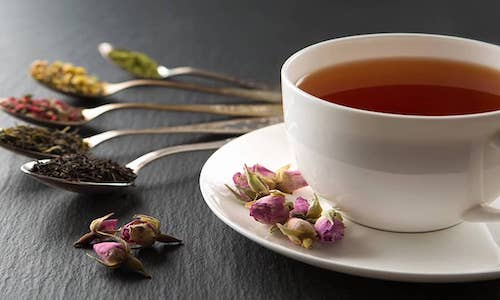In modern fast-paced world, health and wellness have become a priority for many. Herbal teas, with their roots in ancient traditions and natural ingredients, are gaining immense popularity as a healthy and aroma beverage. From chrysanthemum tea to jasmine tea, these herbal brews offer diverse benefits for body and mind. Let’s explore their unique qualities and discover why they are becoming a great supplement in modern wellness routines.
What Are Herbal Teas?
Herbal teas are crafted from a variety of natural plants, including herbs, flowers, fruits, and spices. Unlike traditional teas derived from the Camellia sinensis plant, herbal teas are caffeine-free, making them suitable for all age groups. With a blend of health-focused properties and rich flavors, they provide a safe and wholesome alternative to sugary or artificially flavored drinks.
Spotlight on Popular Herbal Teas
Chrysanthemum Tea
Made from dried chrysanthemum flower heads, this tea is rich in vitamins and trace elements like iron, zinc, and selenium. It supports liver health, brightens the eyes, and offers potent antioxidant benefits, making it a favorite for promoting radiant skin.
Honeysuckle Tea
Honeysuckle tea is a cooling beverage made by infusing green tea with fresh honeysuckle flowers. It’s known for clearing heat, soothing sore throats, and alleviating summer irritability. Its refreshing properties make it a must-have in hot weather.
Barley Tea
Barley tea, popular in East Asian cultures, is brewed from roasted barley grains. It’s packed with nutrients like B vitamins and unsaturated fatty acids, helping with digestion, weight management, and hydration while offering a comforting nutty flavor.
Jasmine Tea
This aromatic tea combines fresh jasmine buds with green tea, creating a calming beverage with floral undertones. Known for its relaxing properties, jasmine tea has been a beloved choice for over a thousand years.
Key Benefits of Drinking Herbal Teas
- Rich in Antioxidants: Combat free radicals to slow aging and reduce chronic disease risks.
- Boosts Immunity: Herbs like ginger and echinacea strengthen the immune system.
- Aids Digestion: Ingredients like peppermint and fennel soothe bloating and improve gut health.
- Supports Heart Health: Teas like hibiscus and rooibos help regulate blood pressure and cholesterol.
- Relieves Stress: Chamomile and lavender promote relaxation and reduce anxiety.
- Weight Management: Certain teas, such as green rooibos and barley tea, support metabolism and fat burning.
- Enhances Oral Health: Herbal teas with antimicrobial properties prevent bad breath and gum issues.
How to Choose the Right Herbal Tea
-
Match Your Body Type
- Warm teas like ginger and red date are ideal for cold prone individuals.
- Cooling teas such as chrysanthemum or honeysuckle are better for those with a "hot" constitution.
-
Consider Flavor Preferences
- Jasmine and rose tea for floral lovers.
- Barley and mint tea for those preferring traditional simple flavor.
-
Seasonal Selection
- Opt for cooling teas like mung bean or chrysanthemum in summer.
- Choose warming teas like black tea or Puer in winter.
-
Check Freshness and Storage
- Store teas in a cool, dry place away from sunlight to maintain their potency and flavor.
Conclusion
Herbal teas combine years traditions with modern health benefits, making them a versatile and valuable addition to a balanced lifestyle. Whether you’re sipping chrysanthemum tea for radiant skin, honeysuckle tea for a cooling detox, or jasmine tea for relaxation, there is always a brew to suit your every need.
By choosing teas that align with your body type, taste preferences, and seasonal needs, you can enjoy their full range of health-boosting properties. So, pour yourself a cup, savor the flavors, and let herbal teas refresh your body and mind.





